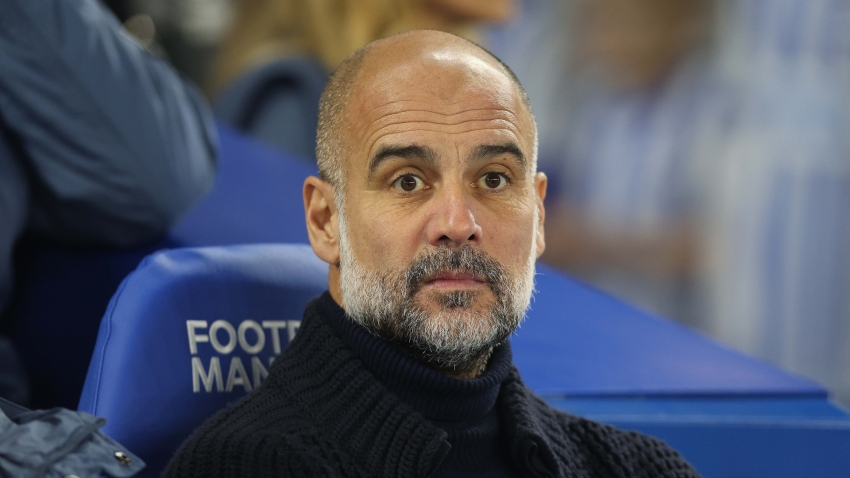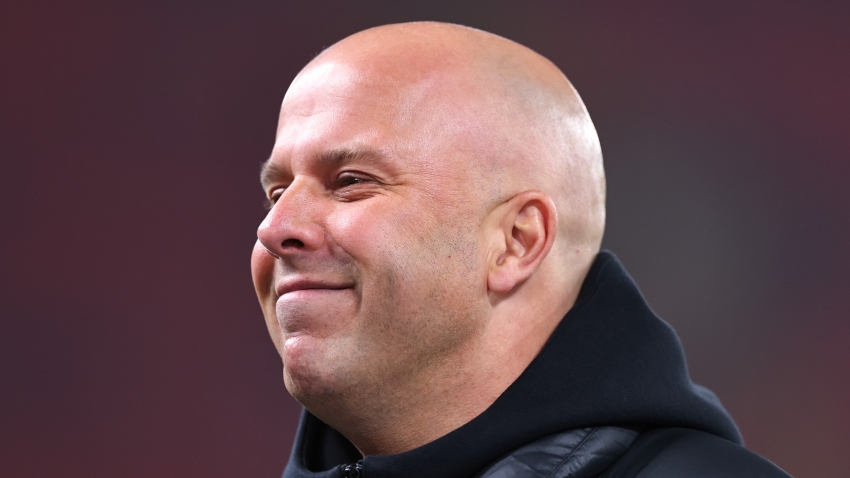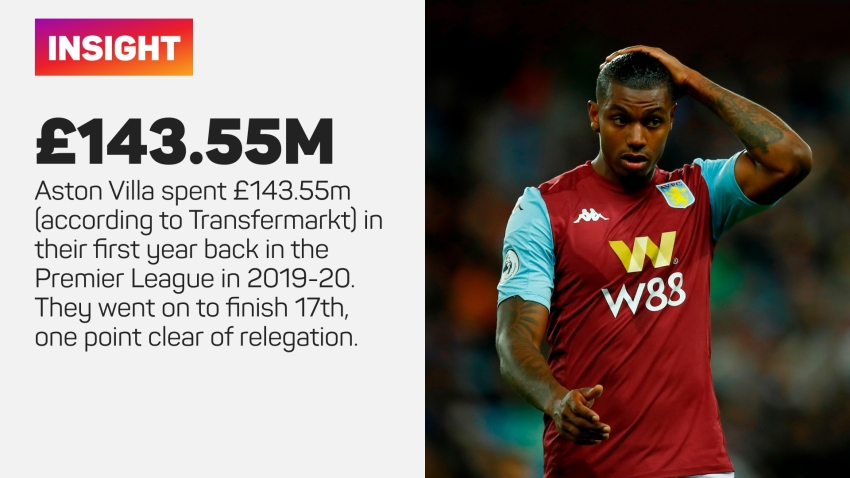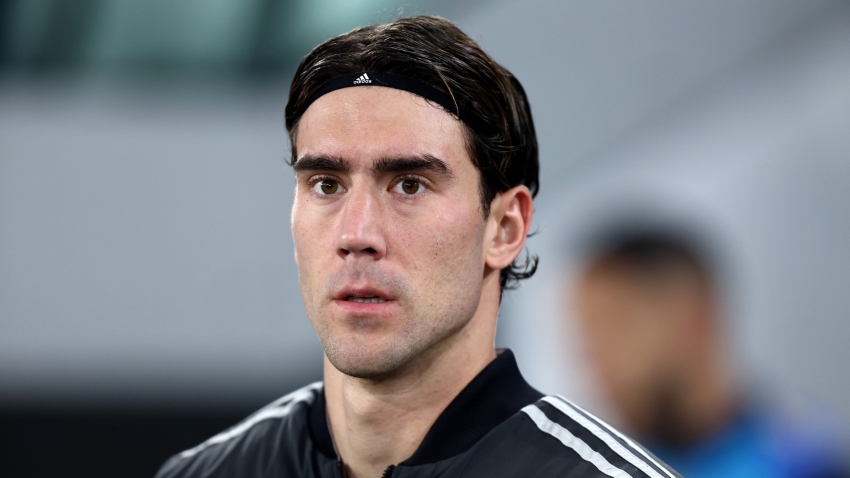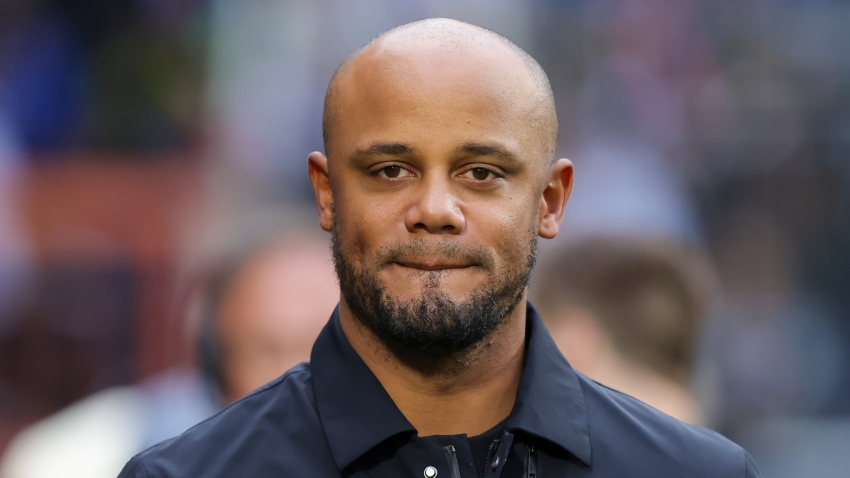If there is one thing football fans will simply never be calm about, it is the amount of money their club spends on transfers.
No matter how many new, shiny players their team signs, that brief release of endorphins they get from watching YouTube compilations, checking Twitter for updates and finally seeing some over-produced nonsense of a reveal video soon dissipates and it's on to the next one.
Having said that, you wonder what it must have been like to be a Nottingham Forest fan during the transfer window, which finally closed on Thursday.
Back in the Premier League for the first time since 1999, Forest are determined to cement their place in the top tier.
Whatever anyone thinks about the quality of the arrivals, the club absolutely went for quantity as an incredible 21 players came through the door at the City Ground at a total cost – according to Transfermarkt – of £145.76m. Only Chelsea (£251.09m), Manchester United (£214.22m) and West Ham (£163.80m) spent more in the Premier League.
At the other end of the scale, the spending of the team that finished two places above Forest in the Championship last season, Bournemouth, has been comparatively meagre.
The Cherries committed just £24.21m to incomings, with three of their six new arrivals in the window coming in on free transfers, and one a loan.
Head coach Scott Parker was sacked on Tuesday after making his feelings known on the lack of investment from above after his team's 9-0 humbling at Liverpool.
But which approach is likelier to pay off in the long run? You would think Forest's launching of money at anything and everything will give them a better chance of staying up, and possibly even challenging higher up the table in future, but football is rarely that simple.
Using fees from Transfermarkt, Stats Perform has taken a look at the past 10 years of spending from the Premier League's promoted clubs to see how those who splashed the cash in their first season back in the big time fared.
Forest have, unsurprisingly, spent more than any promoted team in Premier League history.
The only club to have come close was Aston Villa in 2019-20, forking out £143.55m after they got themselves back into the top flight.
While it worked as they avoided relegation, they did so by the skin of their teeth, with the final-day draw at West Ham keeping them safe by a single point.
Their survival was largely down to the brilliance of Jack Grealish, who was already there, though some of their signings that season remain at the club - such as Tyrone Mings, Ezri Konsa, Douglas Luiz and Marvelous Nakamba.
There have only been two other clubs to spend more than £100m in their first season back in the English top flight and both came in the 2018-19 campaign, with very different results.
Wolves' outlay of £101.48m saw them challenging for the European spots, finishing seventh with 16 wins and 57 points, ahead of Everton, Leicester City and West Ham.
Fulham, on the other hand, spent slightly more (£104.85m), but it did them no good at all as they finished 19th and went straight back down to the Championship, leaving them lumbered with a lot of expensive players with big contracts.
They have managed to recover since, and invested £55.26m after promotion last season, but it was proof if it were needed that big spending is not even a guarantee of survival, let alone success.
There have been just five clubs that have spent less than Bournemouth in preparation to make the jump from the second tier to the Premier League since the start of the 2012-13 season.
Two of them came in that campaign, and as above, with mixed results. Reading spent just £9.74m and unsurprisingly went back down, while West Ham forked out £21.51m on new recruits and finished 10th, and have remained in the Premier League ever since.
The same thing happened in 2014-15 as Burnley's spend of £11.36m was not enough to keep them up, while Leicester's outlay of £20.57m is the least any promoted team has spent without going back down in the past decade. A year later, they won the league.
The least any promoted team has ever spent was fairly recently, with Norwich City deciding they would try and mix it among the best in the land in 2019-20 with an outlay of just £7.93m. It did not work.
Those stories do not really allow us to draw any conclusions though, given the vastly differing fortunes between clubs who appeared to follow similar volumes of spending.
That rings true throughout the past 10 years, with some interesting outcomes along the way.
In the 2013-14 season, Cardiff City (£41.23m) spent more money than both fellow promoted sides, Hull City (£27.99m) and Crystal Palace (£29.70m), but were the only one of the three to go back down.
The 2017-18 campaign is the only one in the past decade that has seen all three promoted sides stay up, with each of them spending between £40-60m (Newcastle United - £41.85m, Huddersfield Town - £51.08m, Brighton and Hove Albion - £59.85m).
In the 2020-21 campaign, only high-spending Leeds United (£96.12m) stayed up of the promoted teams, with West Brom (£37.93m) and Fulham (£33.53m) going back down.
However, last season, only low-spending Brentford (£33.03m) stayed up, with Watford (£39.15m) and Norwich (£57.20m) going back down.
Across the past 10 seasons, the team that spent the most out of the three newly promoted sides has ended up being relegated in five of them, while in seven of the past 10 seasons, the team that spent the least of them has been relegated.
So, what can we gleam from all this?
Essentially, spending money does appear to provide a slight upper hand. Those who have spent more have given themselves a better chance of staying up, but arguably not by the extent you would expect, or even to the extent that makes doing so worthwhile.
Those who choose to be more frugal seem to pay for it eventually, apart from those who already had a strong squad or structure anyway, such as West Ham in 2012-13.
As is the case throughout the game, spending money will only work if it is done with intelligence and the players purchased are utilised efficiently.
Forest will be hoping Steve Cooper can continue to control the wheel as ably as he did in the Championship, but for whoever takes over at Bournemouth, this season might be like getting ahead of Formula One cars in a Ford Focus.









